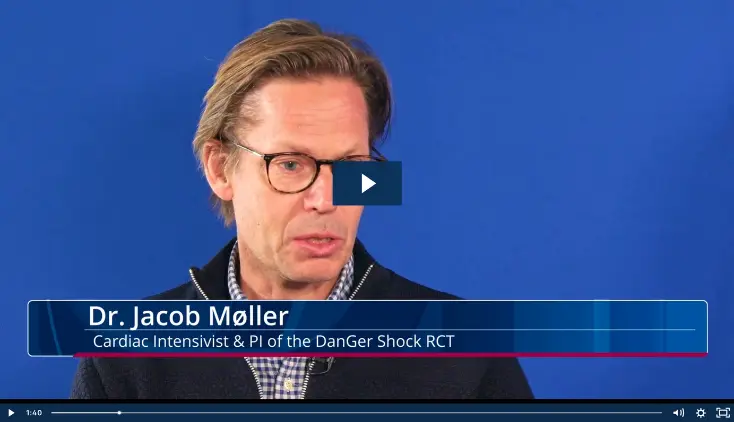Clinical Research & Data, Unloading, AMI Cardiogenic Shock
Optimizing Patient Outcomes in Acute Severe Mitral Regurgitation
Christophe Vandenbriele, MD, PhD, discusses a combined strategy of Impella® and MitraClip™ for patients in cardiogenic shock who develop acute, severe mitral regurgitation (MR) secondary to acute myocardial infarction (AMI) and are unable to proceed to a corrective surgical procedure at presentation due to severe left ventricular forward flow failure. Dr. Vandenbriele, a cardiac intensivist at University Hospitals Leuven in Belgium, is the first author of a recently published paper on this topic in European Heart Journal: Acute Cardiovascular Care.
Dr. Vandenbriele explains that patients in cardiogenic shock with acute, severe MR are often very difficult to wean from mechanical support and inotropic support “because the blood in this acute cardiogenic shock patient group is going completely in the wrong direction.” He explains that the Impella heart pump helps blood flow toward the aortic valve and unload the heart. He recommends early use of Impella for unloading and circulatory support before the patient spirals too far into cardiogenic shock. Dr. Vandenbriele explains that this gives the heart, and other vital organs such as the kidneys and liver, time to recover. “And once we think there’s an optimal window and there’s an optimal reduction of the filling pressures,” he states, “then we will select a patient for the MitraClip.” He emphasizes that his main message is: “If you want to go for it, go early. Don’t wait until it’s too late.”
Dr. Vandenbriele reviews the baseline characteristics of the patients studied, echocardiography and supportive therapies at baseline, and study results. He describes 83% survival to discharge and very low readmission for heart failure in the past 6 months in the Impella/MitraClip group with low bleeding rates and virtually no hemolysis. He contrasts these outcomes to patients undergoing emergency cardiac surgery for the same indication with an observed mortality rate of over 50%.
In his paper he notes, “There were no cases where the presence of the Impella CP® device complicated the percutaneous mitral valve repair technique nor did the presence of the pump require a different approach for clip insertion.”
In summary, Dr. Vandenbriele explains that the study indicates that this technique works. “It is an indication that this is a technique that works and might certainly be better, actually, than urgent emergency salvage cardiac surgery.”
MitraClip is a filed for trademark of Abbott
NPS-1621


